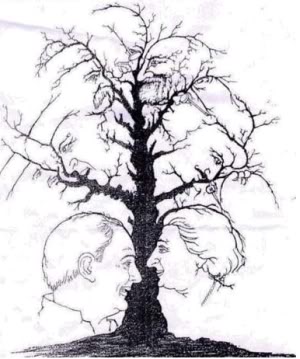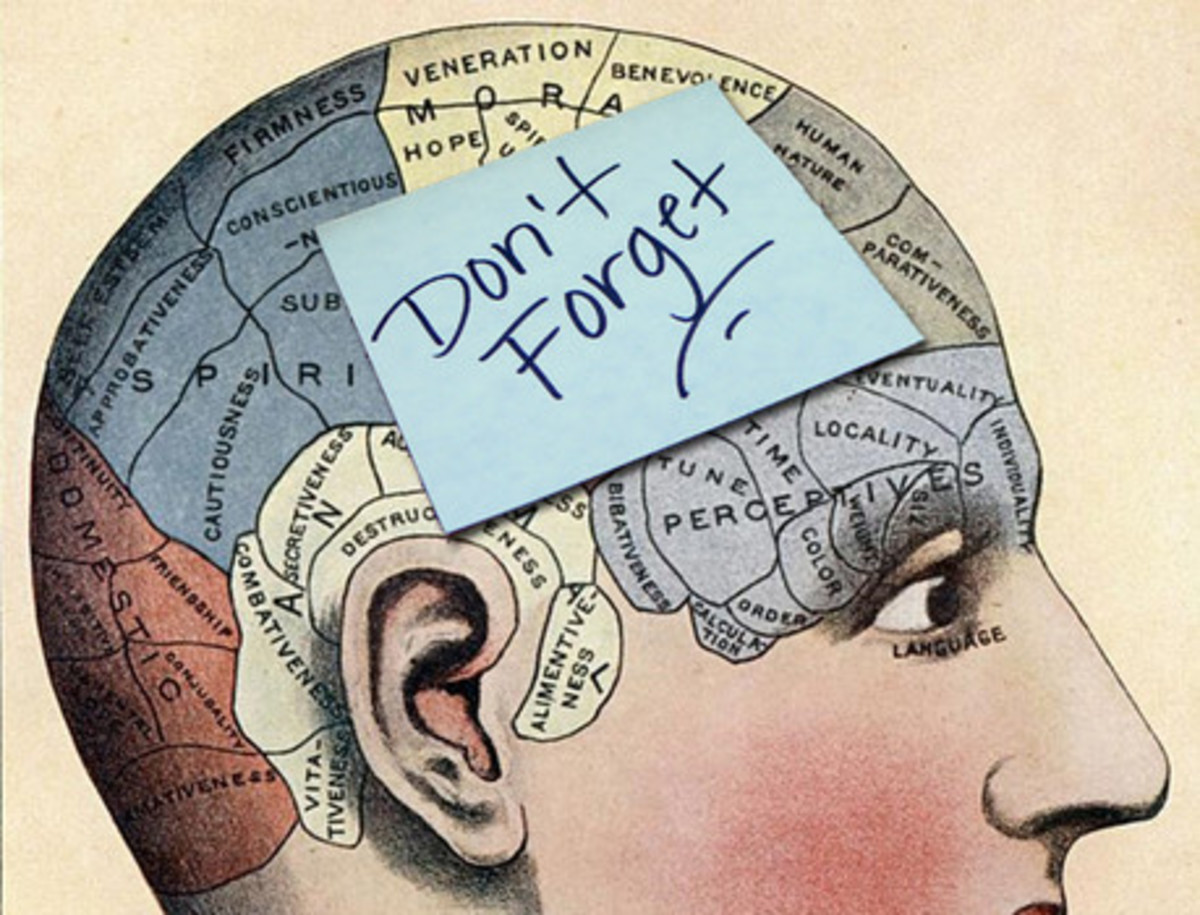Cognitive Process: Perception, Autobiographical Memory, and Decision Making


Purpose of Selected Cognitive Processes
Each cognitive process is designed for a reason and has a specific purpose. Perception is used to organize the information that is gathered through an individual’s senses and then that information is interpreted so that it can be explained and understood. There are many ways this can be done including top down and bottom up processing. This difference between the two lives in past experience and expectations. Autobiographical memory involves the memories one has about his or her life and how the availability and accuracy of those memories over time. Decision making involves the use of other cognitive processes including attention, retrieval of knowledge, and memory to determine the best course of action when a decision is needed (Robinson-Riegler& Robinson-Riegler, 2008).
Perception
Perception is something that can affect many areas of life, but for the purpose of this paper the focus will be on the of television viewing on perception. According to Shrum, Wyer, and O'Guinn, 1998, the television is one of the most used products in America. Although many studies have been done to evaluate the effect television viewing has on everything from crime to learning, this study was done to find out what effect it had on the perceptions of those viewing it when it comes the social issues of crime and occupations. This study also used two different scales to evaluate how much time each subject spent watching television each day to see if the scale levels had any effect on the selections made by the subjects. They found that those who admitted to spending more time watching television had perceptions of crime and occupation demographics more closely in line with what was shown on television than did those who stated that they watched less television. Both studies used undergraduate students as the subjects. The first study had only 71 subjects, while the second had 162. The method used included a questionnaire with 23 questions pertaining to crime and occupation. While 71 subjects could be considered to be significant, using undergraduate students is an overused resource for psychological studies, and the study should be completed with a larger sample size that involved more diversity in demographics used to ensure information is significant.
Autobiographical Memory
According to Conway and Pleydell-Pearce, 2000, autobiographical memories are an essential part of the self, emotions, and overall experience of life. They are studied in many areas of psychology, including social, developmental, clinical, neuropsychology, and cognitive. Each sub-discipline has a specific focus. For example, a personality psychologist may be more interested in how personality traits and attachment styles effect the accessibility to memories, while a neuropsychologist is more interested in possible neurobiological effects on memory. The focus of this paper is on cognitive processes that emphasize representation of these types of memories and the availability of memory to be recalled throughout the life of the individual.
According to Maruszewski, 2010, the theory of autobiographical memories comes from work done by Tulving in which he illustrated the differences between semantic memories and episodic memories. Studies done more recently have shown that there is some flexibility that allows deficits in episodic memory to be filled in using data in semantic memory stores. The contents of these memories can be affected by trace memories as well as societal pressures.
Decision Making
According to Roets and Van Hiel, 2011, the connection between cognitive ability and motivation is one of the least studied areas when it comes to decision making. They believe that there is a causal relationship between the two and that there are a number of effects caused by the interaction between cognitive ability and motivation. They also believe that limited cognitive abilities can hinder the motivation of an individual in general because the limited abilities cause negative feelings that reduce motivation. When it comes to decision making there is a higher level of interaction between the two variables than there is in general. An individual with a high level of motivation and a low level of ability may gather quite a bit of data prior to making a decision, but the information might not as relevant as he or she perceived it to be. It may seem a little obvious, but possessing relevant information is more important than having a large quantity of information. There is a dependent relationship between the two cognitive processes, cognitive ability, and decision making that can have an effect on decision making in that they address the issues of quantitative as well as the qualitative characteristics of the data being processed. This article focused on finding from several studies, though none of the methodology] was discussed.
According to Hurtz, Chinn, Barnhill, and Hertz, 2012, decision making is actually just one step in the problem solving process. The individual needs to determine what the problem is, develop likely solutions, conduct a risk vs. benefits analysis, and determine what the possible outcome for each solution would be. From there the solution with the best outcome can be decided. In this study the variables used included what was termed key feature problems as a way to determine if they affectively could measure cognitive processes that were of a higher level. The length and difficulty of an item as well as the performance and response times were analyzed and information on the ratings from experts on the complexity of cognition was also factored in. The study found the key feature problems were actually more complex in nature than multiple choice questions. This was validated through the ratings as well as through the amount of time needed to come up with an answer.
Conclusion
There are many cognitive processes that individuals use daily without spending much time thinking about them. They include everything from memory processing to problem solving, but in this paper the focus was on perception, autobiographical memory, and decision making. Each process has a specific purpose and focus. Perception involves the collection, processing, and interpretation of information. Autobiographical memory involves the storage and retrieval of memories throughout an individual’s lifetime. Decision making is a process that requires other processes like knowledge retrieval and attention be used to determine the best decision that will result in the best outcome. There have been many studies done on these cognitive processes. One study chosen to illustrate one aspect of perception found that the more television an individual viewed, the more likely the perception on social issues would match with what was seen on television when compared to those who watched less television. Studies completed on autobiographical memories found that some deficits from episodic memory can be filled in with semantic memory stores, and studies conducted on decision making found a high level or correlation between cognitive ability and motivation. It was also determined that each discipline in psychology has a specific focus when looking at autobiographical memories. Cognitive processing is a complex topic to cover and more research is needed in many areas to fill in the holes left by current research.
References
Conway, M. A., & Pleydell-Pearce, C. W. (2000). The construction of autobiographical
memories in the self-memory system. Psychological Review, 107(2), 261-288. doi:10.1037/0033-295X.107.2.261
Hurtz, G. M., Chinn, R. N., Barnhill, G. C., and Hertz, N. R. (2012). Measuring Clinical
Decision Making: Do Key Features Problems Measure Higher Level Cognitive Processes? Retrieved from http://ehp.sagepub.com.ezproxy.apollolibrary.com/content/35/4/396.full.pdf+html
Maruszewski, T. (2010). Autobiographical memory - new data. Neuropsychiatria i
Neuropsychologia, 5(3-4), 122. Retrieved from http://search.proquest.com/docview/1237141357?accountid=35812
Roets, A., & Van Hiel, A. (2011). An integrative process approach on judgment and decision
making: The impact of arousal, affect, motivation, and cognitive ability. The Psychological Record, 61(3), 497-520. Retrieved from http://search.proquest.com/docview/887915417?accountid=35812
Robinson-Riegler, G., & Robinson-Riegler, B. (2008). Cognitive psychology: Applying the
science of the mind (2nd ed.) [Electronic Version]. Boston, MA: Pearson/Allyn and Bacon. Retrieved from the University of Phoenix PSYCH/560—Cognitive Psychology course website.
Shrum, L. J., Wyer, Robert S., Jr, & O'Guinn, T.,C. (1998). The effects of television
consumption on social perceptions: The use of priming procedures to investigate psychological processes. Journal of Consumer Research, 24(4), 447-458. Retrieved from http://search.proquest.com/docview/215034171?accountid=35812








